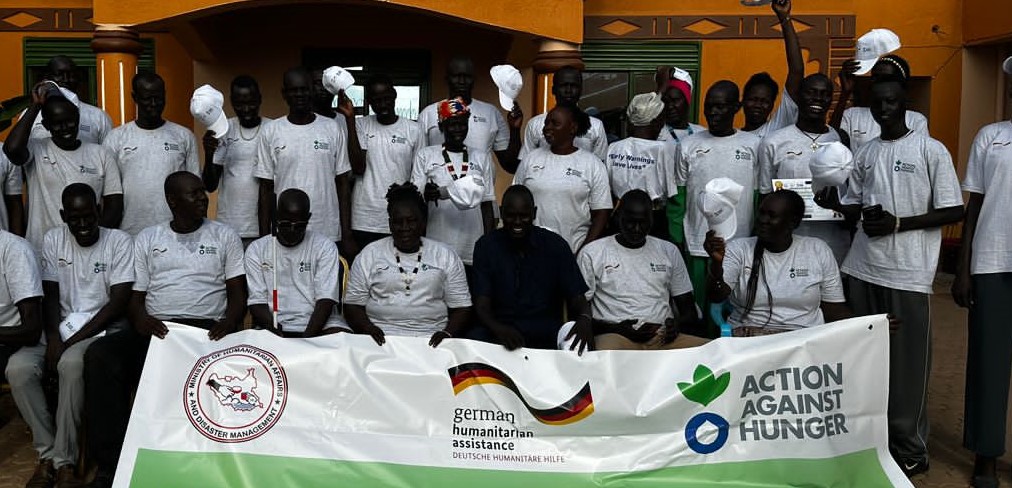The National Ministry of Humanitarian Affairs and Disaster Management, supported by Action Against Hunger (ACF), on Friday concluded a two-day training on disaster risk reduction amid warnings of potential famine due to delayed rains in Warrap, Northern Bahr el-Ghazal and Western Bahr el-Ghazal states.
Official forecasts predict heavy rainfall this year in Equatoria and Upper Nile regions, while Warrap, Northern Bahr el-Ghazal and Western Bahr el-Ghazal face drought conditions that could lead to severe food shortages.
Martin Mariang, executive director of Warrap’s Relief and Rehabilitation Commission, told Radio Tamazuj that the training was critical to preparing communities for the crisis.
“This workshop helps our communities understand the coming dangers and take early action,” he said.
Mariang thanked the ministry and ACF for the initiative and urged participants to share early warning signs with their communities.
“These 35 participants will serve as ambassadors across Warrap’s six counties, sharing what they’ve learned,” he added.
Denish Ogen Rwot, ACF’s advocacy and communications lead, said the trainees would form county disaster risk reduction committees, educating communities on alternative livelihoods during droughts.
“Funded by the German government, this project began nationally before reaching the state level,” Rwot said. “Participants—including women, youth and people with disabilities—were trained in early warnings and disaster mitigation.”
He advised communities to avoid planting in highland areas, as this year’s limited rainfall will likely only support lowland farming.
Elizabeth Awal Akok, one of the trainees, said the skills gained would help her assist others.
“This training benefits me personally and my community,” she said. “People should prepare by buying seeds and starting vegetable gardens as alternatives.”




